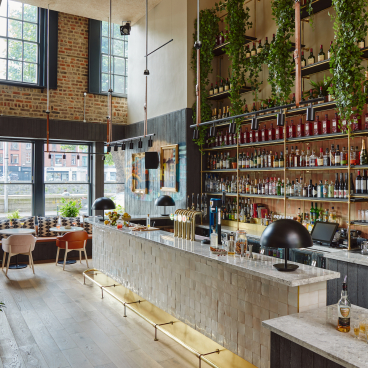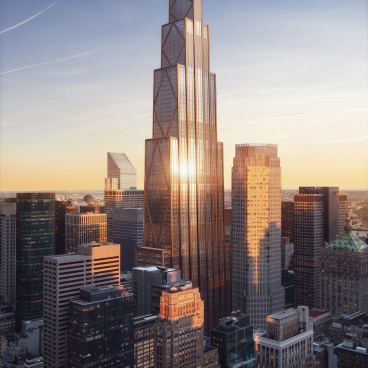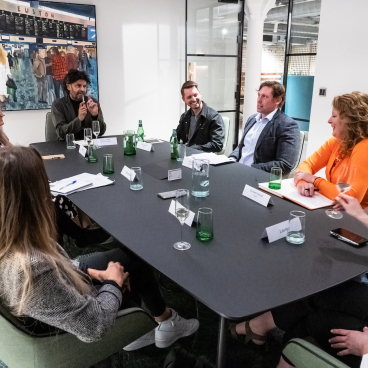Material Source Studio Presents: Manchester Property Outlook - The good, the bad & the future.
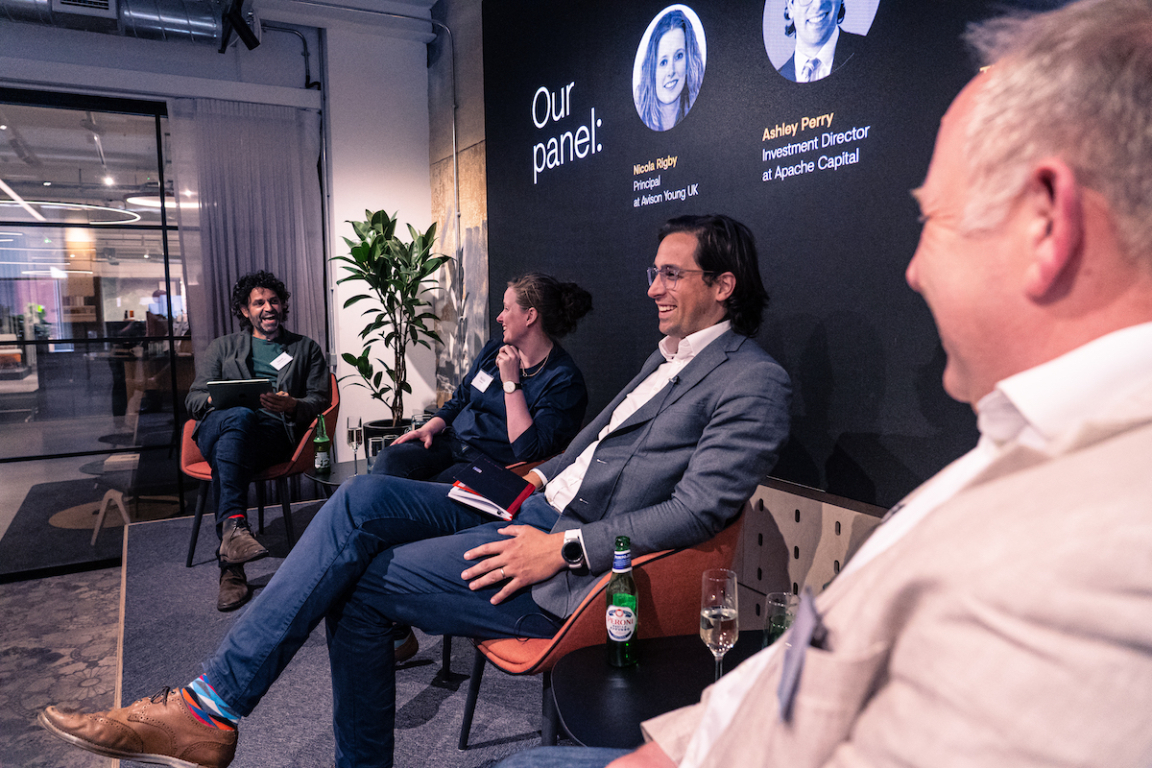
Photography: Tim Ainsworth
For our third Manchester-based Material Source Studio Presents seminar of 2023, we invited three well placed panellists to discuss the city's property outlook, with a focus on the good, the bad and the future.
It seems not a month goes by without Manchester being named in the top echelons of a particular UK, European or worldwide poll. A report released just this week by CBRE - Which City? Which Sector? - highlighted Manchester as a top 5 growth city in the majority of the sector spotlights - from retail to hospitality and affordable housing.
With this, and many other studies clearly heralding Manchester as an investor's paradise, we put our burning regional property questions to our panellists Nicola Rigby, Principal at Avison Young UK; Ashley Perry MRICS, Investment Director at Apache Capital; and Tim Smith, Vice President of Development at EQ Group. Host David Smalley, Material Source Studio director, opened up with a simple question to kick off proceedings: "Why are investors coming to Manchester?"
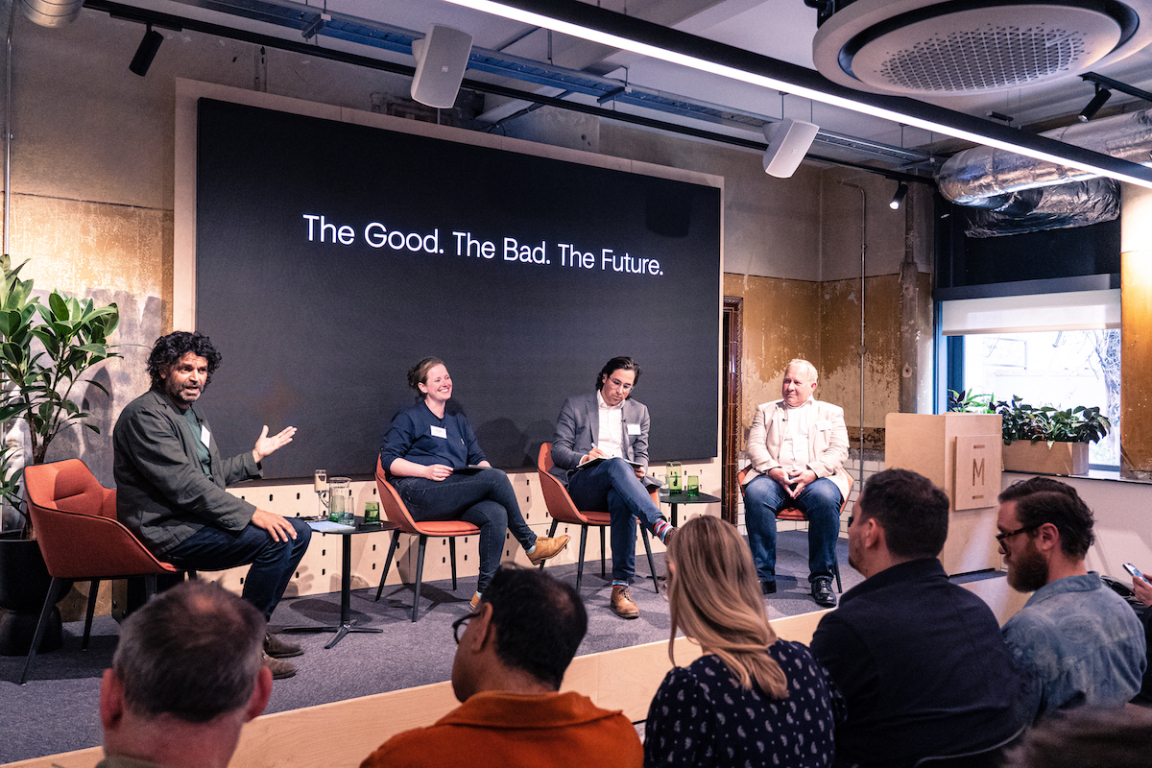
Photography: Tim Ainsworth
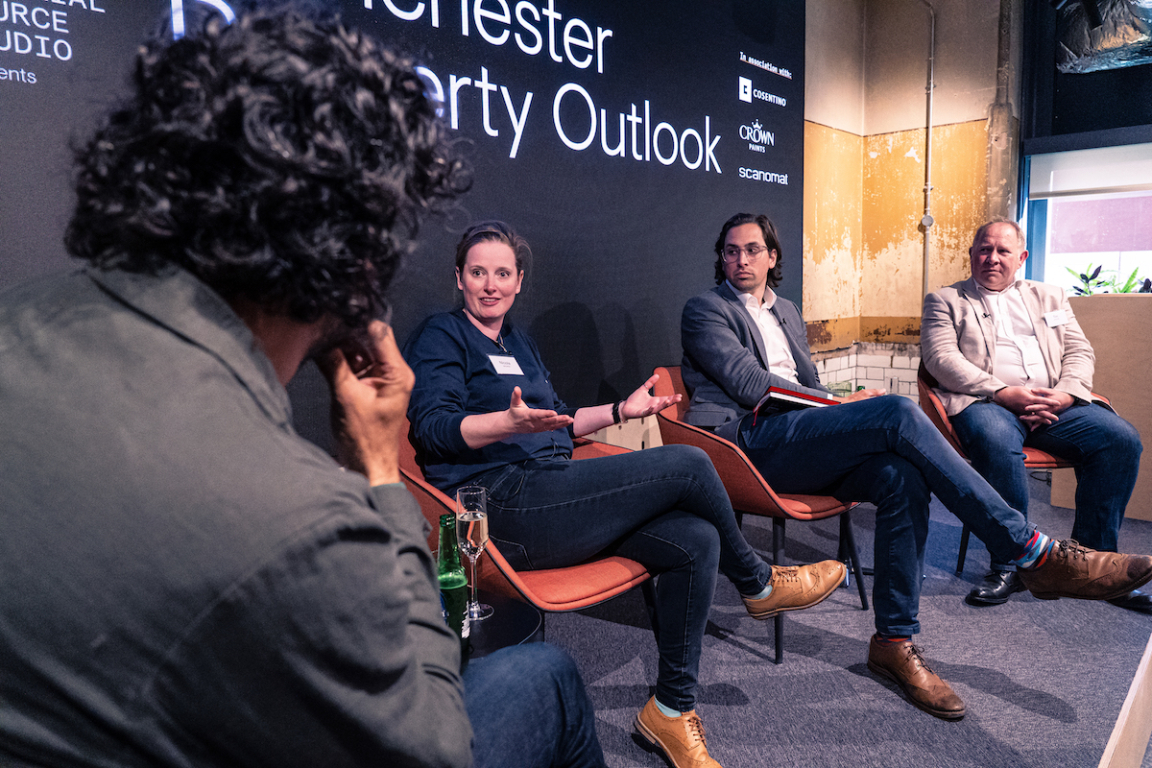
Photography: Tim Ainsworth
The good & the bad(ish)
“Scale”, answered Nicola. “I think we have scale right in Manchester. In terms of investment outlook compared to other cities in the north of England in particular, the city council has really positioned itself in allowing the creation of neighbourhoods within the city centre, which is a really powerful thing and something I think they’ve definitely got right. These are areas that we don’t even challenge in our minds now i.e. First Street, NOMA, Ancoats, Mayfield. Take the experience of walking to Mayfield to go to a park, you wouldn’t have dreamt of that even 5 years ago. It’s such a subtle thing but defining the reasonable distance to walk in a city centre is something Manchester has explored well.”
Tim too believes Manchester’s strength lies in its solid infrastructure. “We have a great international airport; you can get here from almost anywhere in the country now in 2.5hours; you have public transport to get around the city; and failing that you can walk. So all of this gives reason to come here. Looking at events such as conferences, if you go to Birmingham’s NEC, you’re not in the city. Manchester conferences are in Manchester. And you can walk from event to bar to restaurant. It works. And other cities have not got that right.
“Another key thing for Manchester is you have leisure-based tourism from football, retail and concerts. You’ve got commercial tourism from international businesses and life sciences, and you’ve got a growing local business community too. All of those provide reasons for people to come to Manchester and stay - even if only for two or three nights.”
You’re not looking for stability in Manchester any more, you’re looking for growth – Tim
Elsewhere, Ashley believes the city has been a pioneer, particularly when it comes to innovations in residential. “7-8 years ago when Apache made the pioneering move into working with Moda as our delivery operator to launch Angel Gardens in 2019, it was a very optimistic punt. Clearly a lot of BTR activity has followed that initial investment."
Sticking with the concept of neighbourhoods and creating thriving communities within the city centre, an audience question asked: “How do you incorporate social value and community engagement in your projects?” With emphasis on the ‘S’ in ESG.
From a residential perspective, Ashley commented: “Making people feel included in a building through events that not only cater to the people that live there but that look at engagement with the local community, such as hosting in the public realm. BTR is designed from a social perspective for the missing middle – it doesn’t work without the social aspect.”
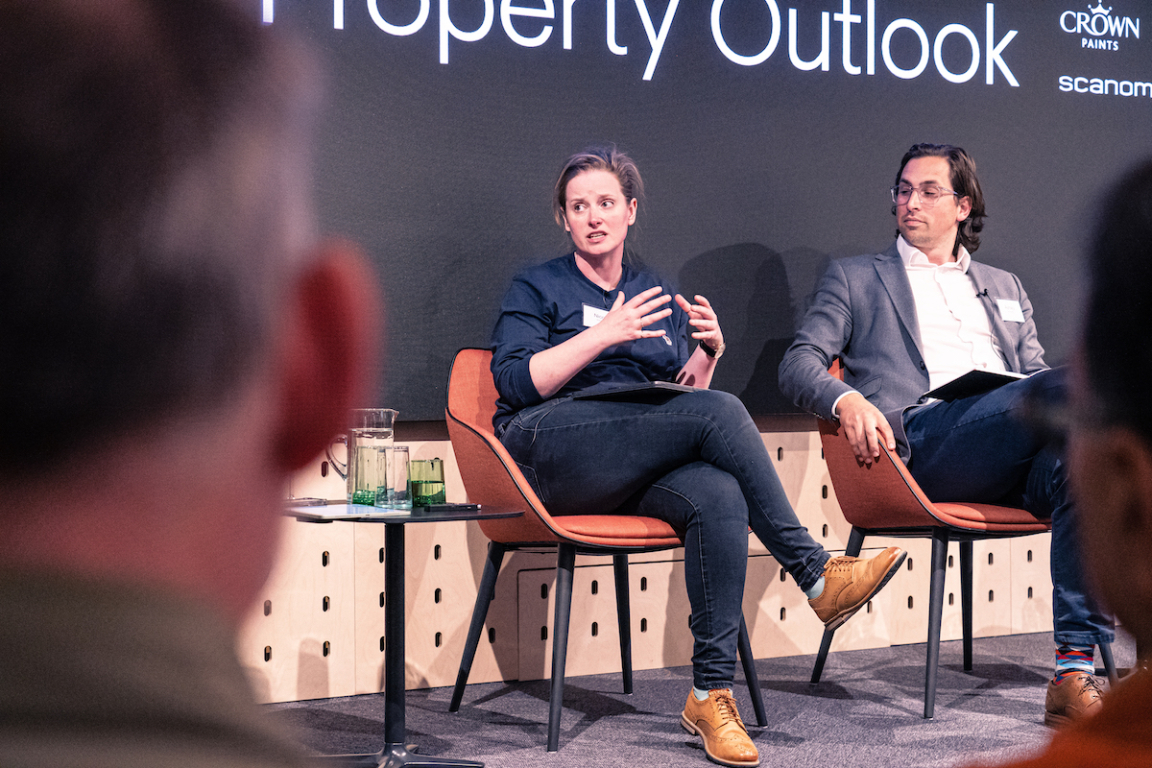
Photography: Tim Ainsworth
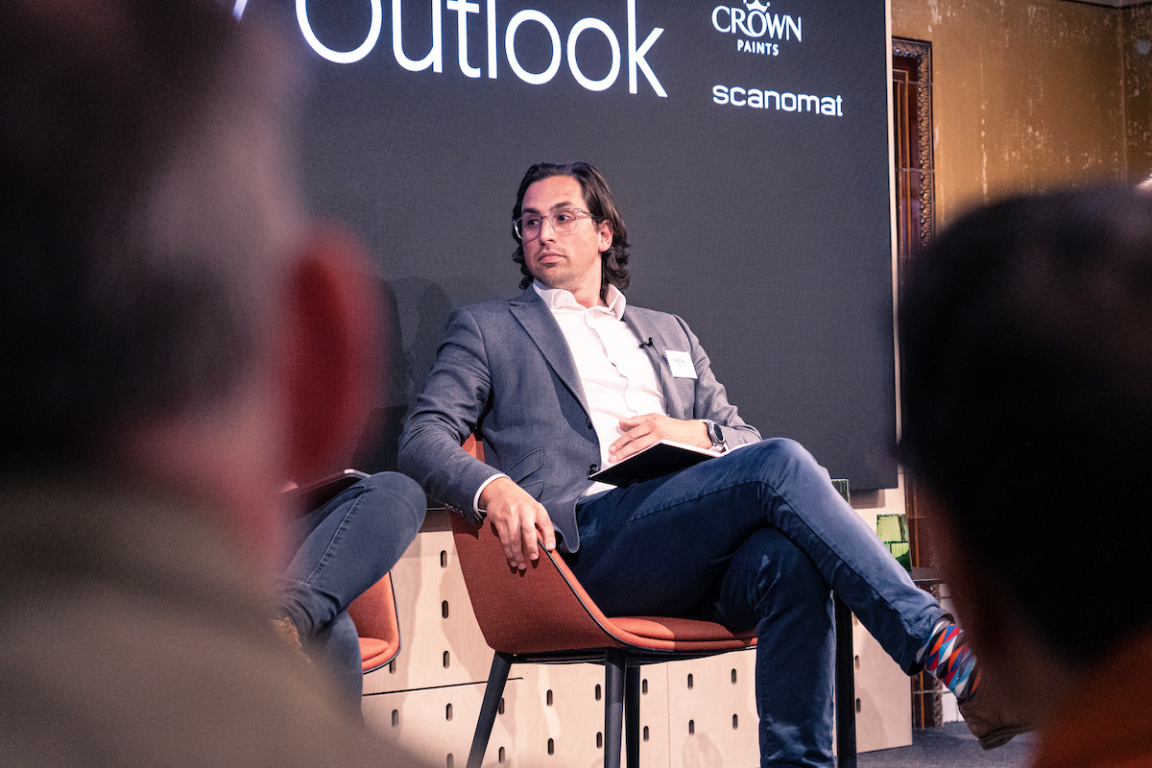
Photography: Tim Ainsworth
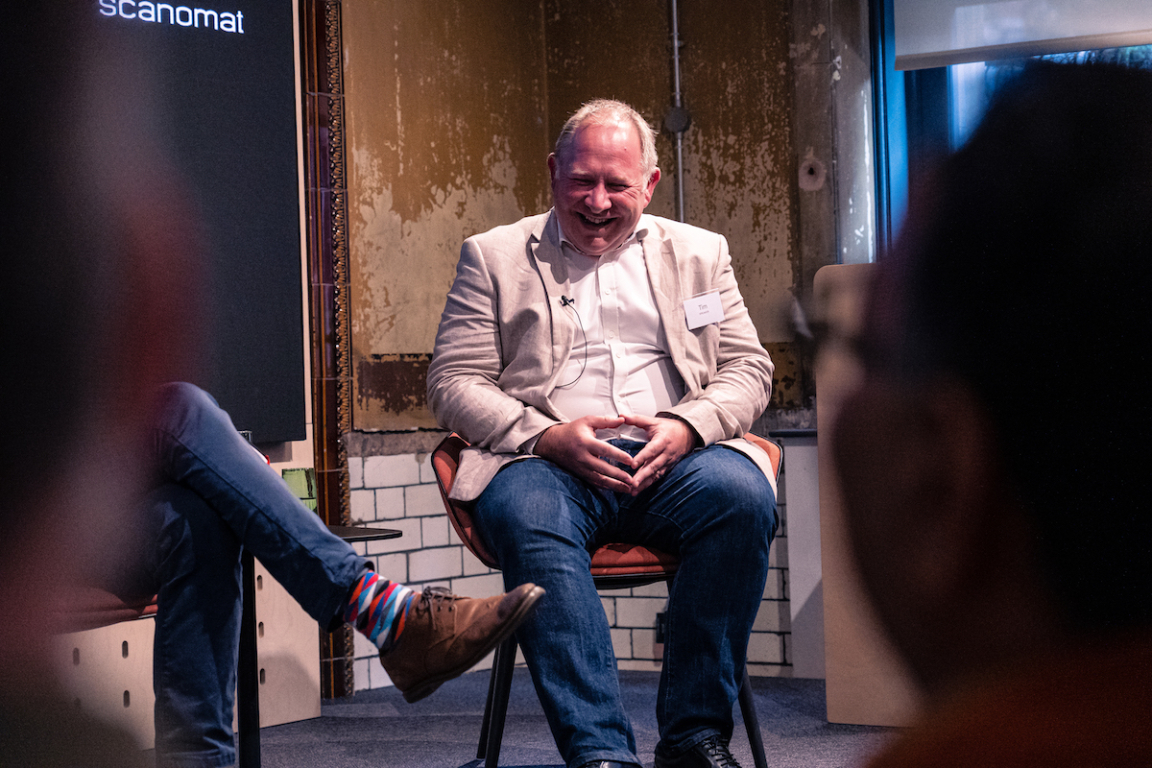
Photography: Tim Ainsworth
Moving on from residential to workplace, David explored how investors are feeling since Covid – “No one’s coming to work, are they?” he asked.
“People are coming to work”, replied Nicola, “But what they’re not doing is coming to work from 9am – 5.30pm. The genie’s out the bottle. We don’t have to do that anymore to bring value. From an investor perspective, when we look at office take up and office activity, the numbers show it's down YoY, but that’s because it’s predominantly measured on square ft rather than transactions. People are looking at smaller spaces. The bigger issue from an investor or asset owner is what we do with the floor space? You’ve got changes in the market, different trends, and occupier requirements – it’s a booming industry from an interior design and fit out perspective – but if you’re an asset owner you’re a bit nervous right now because you’ve got people negotiating smaller spaces, and you’ve got significant upcoming investments from an environmental performance perspective, so you’re sitting on a ticking time bomb.
“So, the next few years will be interesting in terms of how that changes. There’s scope for the reimagination of existing spaces and there will be pressure to not demolish, to convert space…hoteliers will need to become more innovative, conversion of commercial to residential will become a big deal…but investing in that asset base to preserve an office presence in the city centre is going to be important.
As a city we’ve got a responsibility to make sure we’re still attracting footfall during working hours – Nicola
Ashley concurs: “The nature of our strategy is to be in the heart of the action, so clearly, we want there to be action. We’ve seen an awful lot more interest in working from home, and there’s still people located near their office, but we feel more space is needed for homeworking areas, so this is something we’ve pivoted and done.”
“This is a great example of what people want now [Material Source Studio]", highlighted Tim. “And it’s exactly the same in hotels. We could have had an event like this in a bland hotel meeting room…or we can have an informal meeting in a really nice environment. It’s innovative. At the time it was a shock when we were told we couldn’t go back to the office. Then two weeks in we realised we can work just as well from home.
Things have changed, and the design and property worlds have got to change too – Tim
“I don’t think there’s any doubt we can do our jobs from home”, added Nicola, “but I think there’s a privilege attached to being senior in our careers/industry, and it’s too easy to rely on that. I worry about the next generation of people coming through because they’re not learning and developing in the same way we did and neither is right or wrong but there’s a softer side and certain skills that you get from being physically present in a place – the ability to ask questions, for example.”
Investment-wise, design amenities and user experience are key to any scheme. Pointing to the audience, David asked, “are these guys getting it right?”
Looking specifically at residential, Ashley said: “Zooming out from an investment standpoint, some institutions across early BTR are trading out. In terms of interiors and amenities, things need to be refreshed and replaced. And I think there will be lifecycle discounts for some assets that are coming out this year.
The emphasis now is on people investing in their amenities spaces – it’s something that’s really improving – Ashley
Nicola added: “From my perspective, I wouldn’t say it’s something anyone in the room has got wrong but we’ve got to start factoring in space place management earlier in the design process. So often when there’s schemes that I’m involved in at city or town scale we are dealing with public realm and experience but management or commercialisation of that space isn’t factored in early enough.
“Anyone within the design process is responding to a brief, and I think the brief has to be written in a way that facilitates and encourages this, plus the budget has to be in there to facilitate input from different disciplines right from the outset. But I think we could push harder for it. We have to think about the pride in going back to a scheme after 15 years and thinking about those exceptional choices we made around materials in the public realm. Are they behaving the way we want? And if not, why not?”
Ashley observed that often when public space gets delivered, there can be too many rules around behaviour. “I think there’s a tricky balance to be struck there because we have to consider what feels organic – because in 15 years, a sterile approach will not wear well.”
Tim rounded off this discussion point nicely with this comment: “Because the world has moved on so significantly, no one in this room, irrespective of their role, could have got it right if historically looking forward.”
“So, then, to summarise”, asked David, “is Manchester in a good place?” To which a resounding “yes” came in answer from all on the panel.
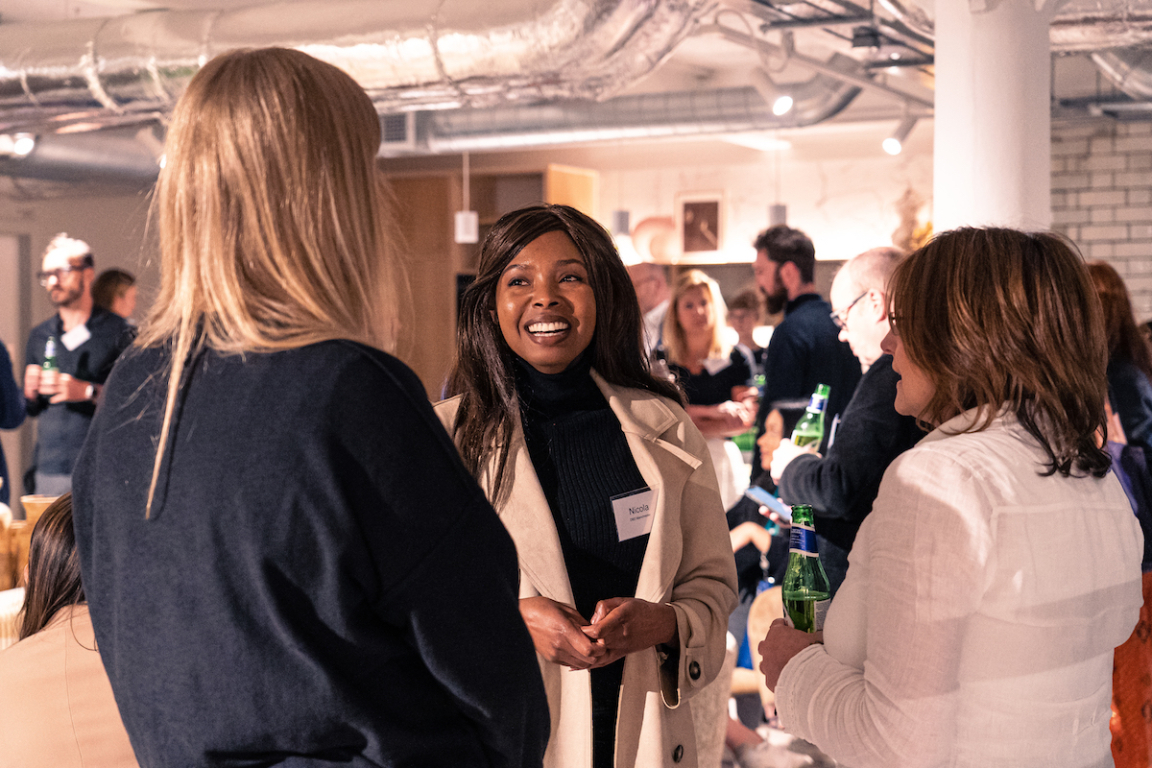
Photography: Tim Ainsworth
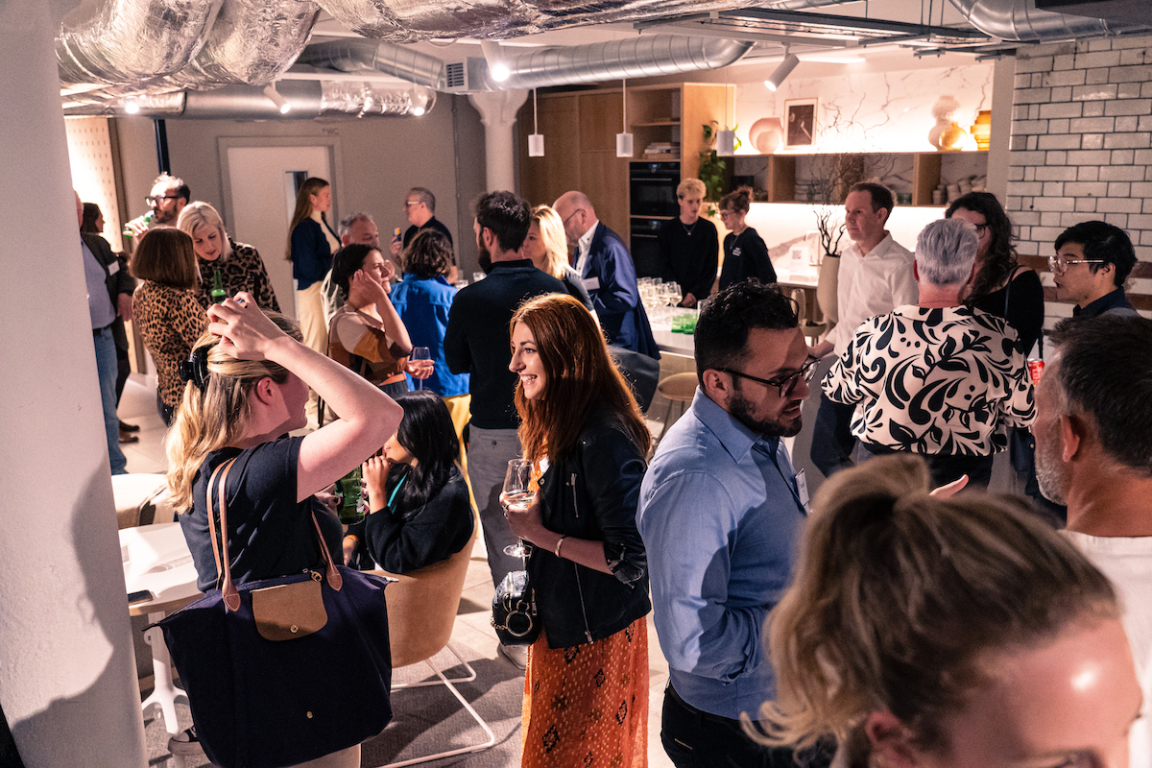
Photography: Tim Ainsworth
The future
As investors themselves, David quizzed the panel on whether they were looking to invest more in Manchester. All answered yes, with the key sector highlighted for growth being residential. Ashley said “We are actively looking for sites in Manchester. It’s a big city regionally for BTR. And single-family housing is spreading in places like Bolton and Rochdale.” Nicola seconded this with: “We haven’t talked about affordable housing at all today. It’s such as big market in Manchester. And there seems to be a wave coming from an affordable rent perspective.”
With this in mind, and an abundance of available office space - is retro fit still appealing to investors or do they just want big, shiny and new?
“Something we touched on earlier is the environment aspect”, said Tim. “If you’re looking at longevity in your investments, big, shiny and new offers higher values for longer than a retrofit because with the latter there will be compromise on the design and fit out.”
Nicola added: “It depends how far we push zero carbon emissions as a city…that works in a scenario where you can stomach the carbon impact of demolition.”
As for future growth, an audience member asked: “Is the provision of assets we have now fit for the next generation?”
Nicola brought the seminar - which, as always, flew by - to a close with her thoughts and predictions for the near future: “The high street is evolving. It won’t look anything like it does today. Retail space will be flexible and that’s exciting because it creates a new type of vibrancy.
“More widely as a city, we will see an explosion of the geography - more homes being built, we have to see more schools and health care… if you want the bad of Manchester, that has been ignored for far too long from an infrastructure perspective. We will also see a scaling up of quality investment in our towns around Manchester - this is city’s future.”
We'd like to say a huge thank you to our panellists and audience. Plus a special thank you to our sponsors Cosentino, Crown, Scanomat - all partners at Material Source Studio. Click here to see all our upcoming events and seminars - we look forward to welcoming you again soon.





